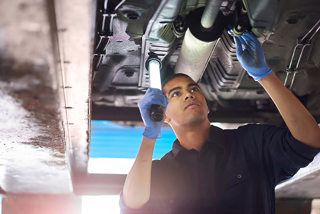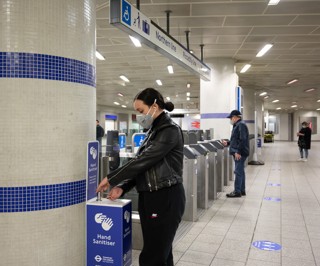Lockdown measures employed during the coronavirus crisis have resulted in thousands of fleet managers running vehicles from their homes.
Now, as lockdown measures begin to be lifted, could fleet management remain a much more remote activity in the future?
A recent Fleet News survey showed an overwhelming majority of fleet decision-makers – close to three-quarters (73.4%) – said they were working from home; one in 10 were dividing their working day between the office and home, and just 15.4% were still in the office full-time.
Meanwhile, a Fleet News poll suggests that for many, some two-thirds (66%) of respondents, working from home will become their new ‘normal’.
FleetCheck says that, looking at its customer base, large numbers of companies are planning to never completely return to conventional office or depot-based working, which will have an impact on how company vehicles are managed.
FleetCheck MD Peter Golding explained: “While the situation remains very fluid, there are many businesses who have learnt, over the last few months, that home working is very viable for some or all of their staff. They recognise the advantages for both employer and employee and have no intention of returning fully to the ‘old’ way of working.
“The exact extent of this is impossible to predict at the moment but even a relatively small shift will have very definite implications for how fleet management is approached generally. It is likely to remain, as it has become in certain weeks, a much more remote activity than in the past.”
Golding believes that, if more people driving company cars and vans are home working, processes will have to change, especially around risk management.
“The fact is that, in the real world, a lot of fleet management happens in an informal manner, especially in small-medium-sized companies,” he said.
“If damage occurs to a vehicle, the fleet manager is likely to notice it on the car park and if a driver is perhaps too ill to drive, you might know purely from the way they look when they are standing in front of you.
“Increased remote working removes these casual interactions to a very large degree. It means a tightening up of your processes to ensure that drivers and vehicles are safe, even if you very rarely see either of those variables in your risk management in the flesh.”
Golding says that there are other implications, such as deciding where vehicles were serviced, and how other essential fleet services were accessed.
“If your workers are now geographically spread across a much wider area, the garages you may have used may no longer be convenient and this means constructing new supplier networks,” he explained.
“The same might apply to buying everything from tyres to windscreens. This may have a knock-on effect in terms of how these suppliers are paid and more.”
A key point from a fleet software point of view, he added, was that fleet managers who are themselves working from home needed to be able to access data remotely.
“If you have a person or a team of people who need to be able to examine and change key fleet data from home.”
Fleet News is again conducting a survey of fleet decision-makers as lockdown measures are lifted, please read more here.























Login to comment
Comments
No comments have been made yet.